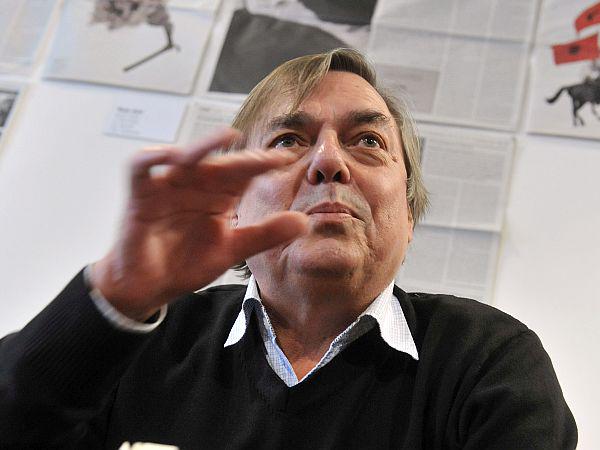
For Jančar, the prize, given for his book That Night I Saw Her, was just the most recent recognition in a literary career marked by a number of prestigious awards – but also ostracism, persecution, and even imprisonment.
Jančar was born in a working-class part of Maribor in 1948. Hs talent for writing became apparent at a young age, and he became a regular contributor to - and editor of - Katedra, a student newspaper. However, Jančar believed in speaking his mind, and his critical, brutally honest views soon got him in trouble. When one of his articles was perceived as being too critical of the Communist regime, he was barred from contributing anything else to Katedra. It was the beginning of a long period of political persecution that ultimately made him a prominent opponent of the Communist regime.
In 1974, when Jančar worked for the newspaper Večer, he was arrested for owning a book on the postwar killing of anti-Communists by Tito's forces. He was arrested for possessing enemy literature and spent three months in prison – the same building where his father had been imprisoned by the Gestapo during World War II. He was eventually allowed to return to Večer, but only to do administrative work – he was not allowed to publish any more articles.
Frustrated, Jančar turned to screenwriting, but even his scripts were censored. By the early 1980s, he had become one of Slovenia's most outspoken dissidents, unafraid to criticize the status quo despite intense pressure from the authorities.
The political pressure eased by the late 1980s as a wave of political reform swept through Slovenia, and Jančar authored several influential books. In 1987, he even became the president of the Slovenian PEN Center. But even though he was no longer being persecuted for his views, he remained on outspoken critic of the Yugoslav political scene. He recognized that Slovenia had no future in the South Slav federation, increasingly dominated by Serbia, and he became an early advocate of Slovenia's independence.
When Yugoslavia finally disintegrated, Jančar spoke up for newly-independent Slovenia at international conferences and in public debates. He also drew international attention to the siege of Sarajevo and the humanitarian catastrophe in Bosnia-Herzegovina.
In the years following Slovenia's independence, Jančar's often-ironic books became bestsellers in Slovenia and have been translated into a number of European languages. In addition to the Femina Prize, Jančar has also won Slovenia's prestigious Prešeren and Kresnik Prizes, as well as the European Prize for Literature.
Despite the democratization of Slovenia, however, Jančar remains deeply concerned about the country's political landscape. He feels that the reformed Communists still rely on old prejudices to maintain their hold on power and that too many Communist-era power structures are still in place. His frequent criticism of the status quo, which once made him a dissident, has now given Jančar the status of something more than an author - he has become a respected public intellectual.
Jaka Bartolj

































































